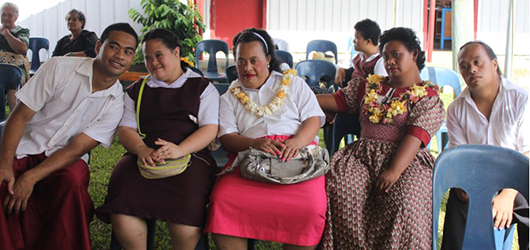
23 Feb 2016
Tongan children given a voice in landmark study
The 18-month project is also the first ever national study of the experiences and needs of children and young people on the Polynesian island.
Research findings will provide a detailed understanding of violence against children in Tonga, advance children's human rights in the country, and create a Children's Protection Act.
Jo Aldridge is Professor of Social Policy and Criminology in Loughborough University’s Department of Social Sciences and an expert on children’s rights and research methods.
She is working with the Tongan national women and children’s charity Ma’a Fafine mo e Famili (MFF) to better understand the needs and experiences of Tonga’s youth for a report that will help inform and shape government policy and practice.
Prof Aldridge said:
“There are currently no child protection or safeguarding policies in place in Tonga to ensure children and young people are protected and supported throughout their childhood so they can stay healthy, safe and make successful transitions into adulthood.
“I will be working with the MFF to speak to children and young people, including children with disabilities, about their childhood experiences, family and school life and their hopes and aspirations for the future.
“This is the first time ever children in Tonga will have a ‘voice’ in research that is about them.”
Gabriella Blake-‘Ilolahia from the Ma’a Fafine mo e Famili (MFF) said:
“Twenty-one years ago, Tonga ratified the United Nations Convention on the Rights of the Child (CRC). Since then, it has failed to ensure all domestic legislature is compatible with CRC and report on it.
“Our Magistrates’ Courts and Criminal Offences Acts still direct that any male child aged 7 to 16 found guilty of a crime can be instructed to be whipped for up to 26 strokes ‘with a cat of a pattern approved by Cabinet’.
“At MFF, we know this study will be the key to changing these barbaric laws and we thank the European Union for funding this important study.”
Evidence from the study, which runs until summer 2017, will be used to develop new child welfare, children in need and child protection policies in Tonga.
The project is funded by the European Union.